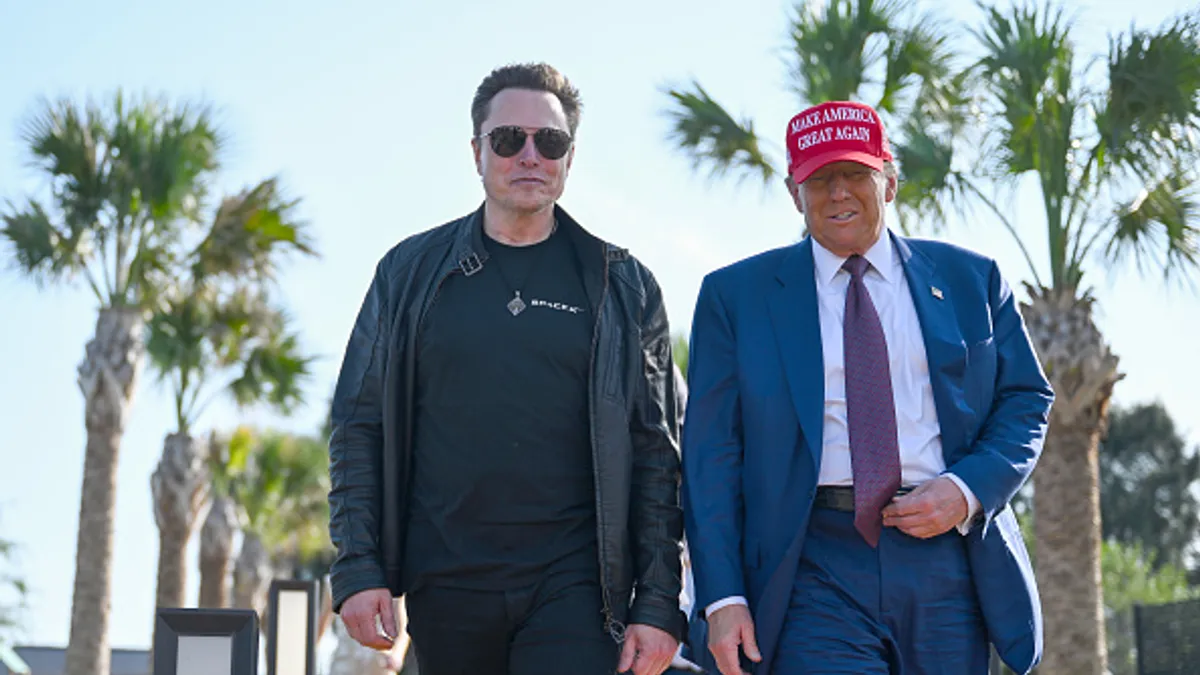Dive Brief:
- In their bid to cut costs and reduce the size of the federal government, future Department of Government Efficiency (DOGE) heads Elon Musk and Vivek Ramaswamy recently called for a return-to-office mandate for the federal workforce.
- “Requiring federal employees to come to the office five days a week would result in a wave of voluntary terminations that we welcome: If federal employees don’t want to show up, American taxpayers shouldn’t pay them for the Covid-era privilege of staying home,” the billionaires tapped by President-elect Donald Trump to head the newly formed organization wrote in a Nov. 20 op-ed in the Wall Street Journal.
- Musk and Ramaswamy said Trump would have the authority to implement a number of rules that could “curtail administrative overgrowth, from large-scale firings to relocation of federal agencies out of the Washington area.” The DOGE leaders said planned mass reductions in federal regulations “provides sound industrial logic for mass head-count reductions across the federal bureaucracy.”
Dive Insight:
A report published in August by the Office of Management and Budget (OMB) found that about 50% of federal workers aren’t eligible for telework, such as those who provide veterans’ healthcare services or who inspect the food supply. Those who are eligible perform 60% of their work on-site, OMB found. If the DOGE leaders’ suggestion is put into place, more than 1 million telework-eligible federal workers could be affected.
Musk has shown disapproval for remote work in his management of his companies. In May 2022, the Tesla CEO sent an email to workers with the subject line “Remote work is no longer acceptable,” in which he mandated that remote workers spend a minimum of 40 hours on site “or depart Tesla.” Musk also implemented an RTO requirement when he took over X, which was previously known as Twitter.
Twenty-five percent of C-suite and vice presidents and 18% of human resources professionals said they wanted RTO policies to lead to voluntary turnover, according to a June report from Bamboo HR. Likewise, 37% of managers, directors and executives said they thought their companies performed layoffs in the past year because fewer people than expected quit after RTO edicts.
In another recent survey by KPMG, 83% of global CEOs said they thought companies would require a “full” RTO for workers in the next three years.
While blanket return-to-office policies may be tempting for employers, attorneys have cautioned against applying such a mandate too broadly. In some cases, companies face discrimination complaints from employees who request accommodations for disabilities. Such was the case with Musk’s RTO mandate at Twitter, when workers alleged the policy violated the Americans With Disabilities Act.













